Hello everyone! It's time for our latest updates from the Audit Committee, and we've got some important insights to share with you. We know that transparency and communication are vital for our organization's success, so we'll be covering key developments, findings, and recommendations from our recent meetings. Interested in understanding how these updates could impact our operations? Keep reading to dive deeper into the details!
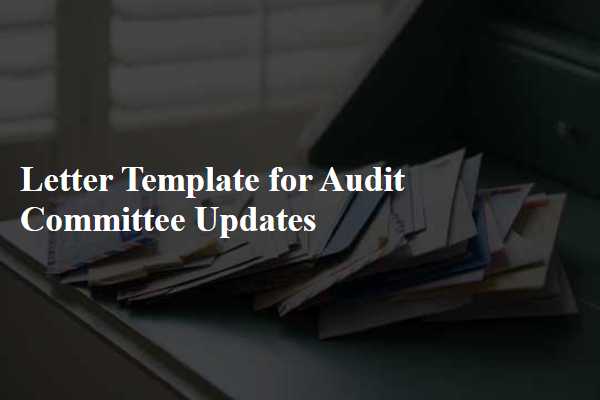
Audit Objectives and Scope
The audit objectives and scope define the extent and aims of the review process, ensuring compliance with regulations and financial accuracy. Key objectives typically focus on assessing internal controls, evaluating risk management practices, and verifying the integrity of financial statements. The scope encompasses operational areas, including revenue recognition processes, expense reporting, and asset management. Specific attention is directed towards high-risk departments, such as procurement (involving contracts exceeding $1 million) and finance (handling a significant volume of transactions monthly). Audit methodologies will incorporate quantitative analysis of data patterns and qualitative assessments of internal policies, aiming for comprehensive coverage within the established timeline. Regular updates will offer insights into preliminary findings, potential risks detected, and recommended actions, fostering transparent communication with stakeholders.
Key Audit Findings and Recommendations
The recent audit conducted on the financial statements of XYZ Corporation for the fiscal year ending December 31, 2023, has unveiled several key findings that warrant immediate attention. Firstly, discrepancies were noted in the accounts payable records, with an identified overstatement of $150,000 due to unrecognized vendor credits. Secondly, internal controls surrounding inventory management at the main warehouse location in Chicago have been found lacking, increasing the risk of misappropriation, with a potential loss estimated at $75,000. Lastly, compliance issues were observed regarding federal tax regulations, necessitating a review of practices which could result in penalties. Recommendations include the implementation of a robust vendor reconciliation process, upgrading inventory tracking systems, and conducting regular compliance audits to mitigate these risks effectively.
Compliance and Risk Management
The audit committee received comprehensive updates regarding compliance and risk management strategies during the quarterly meeting held at the Corporate Headquarters in New York City. The Chief Compliance Officer presented the latest findings from the compliance audits conducted in Q3 of 2023, highlighting areas such as regulatory adherence to the Sarbanes-Oxley Act and industry-specific guidelines for financial reporting. Key performance indicators indicated a 15% increase in compliance training completion among staff compared to the previous quarter. Furthermore, the Risk Management Officer discussed the updated risk assessment framework, emphasizing identification of emerging risks in cybersecurity following an increase in phishing attacks targeting organizations worldwide. The committee also reviewed the risk mitigation strategies in place, particularly the implementation of advanced encryption protocols and regular threat assessments. Overall, the updates showcased a proactive approach to ensuring organizational integrity and safeguarding assets.
Financial Reporting Status
The financial reporting status for the fiscal year ending December 31, 2023, indicates significant progress in the preparation of quarterly reports. The accounting team, utilizing generally accepted accounting principles (GAAP), is on track to finalize the third-quarter financial statements by November 15, 2023. Key figures, including total revenue projections of $5 million and net profit estimates of $500,000, show a 10% increase compared to the same period last year. External audits conducted by Deloitte, slated to commence on December 1, 2023, aim to ensure the accuracy and compliance of financial reports. Additionally, the implementation of a new financial software system, implemented in Q2 2023, has improved reporting efficiency by reducing processing time by 30%. Ongoing training sessions for staff will support adherence to reporting timelines and accuracy standards.
Audit Timeline and Next Steps
The audit timeline plays a critical role in ensuring financial transparency and accountability within an organization. Specific milestones, such as the initial planning phase occurring on September 15, 2023, and the fieldwork scheduled from October 1 to October 15, 2023, are pivotal for establishing a thorough examination of financial records. Key stakeholders, including internal auditors and members of the audit committee, will convene on October 20, 2023, to discuss preliminary findings and address any discrepancies. Further steps involve compiling a comprehensive report by November 10, 2023, which will be presented in the next committee meeting in December, confirming compliance with the Municipal Auditing Standards (MAS). Timely updates during this process ensure all members remain informed and prepared for subsequent actions.

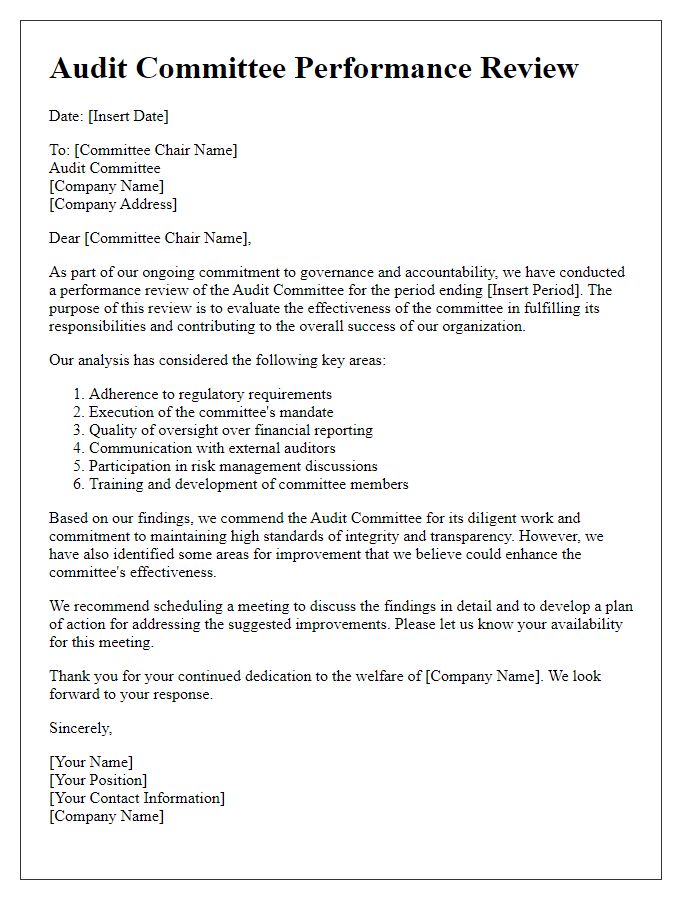
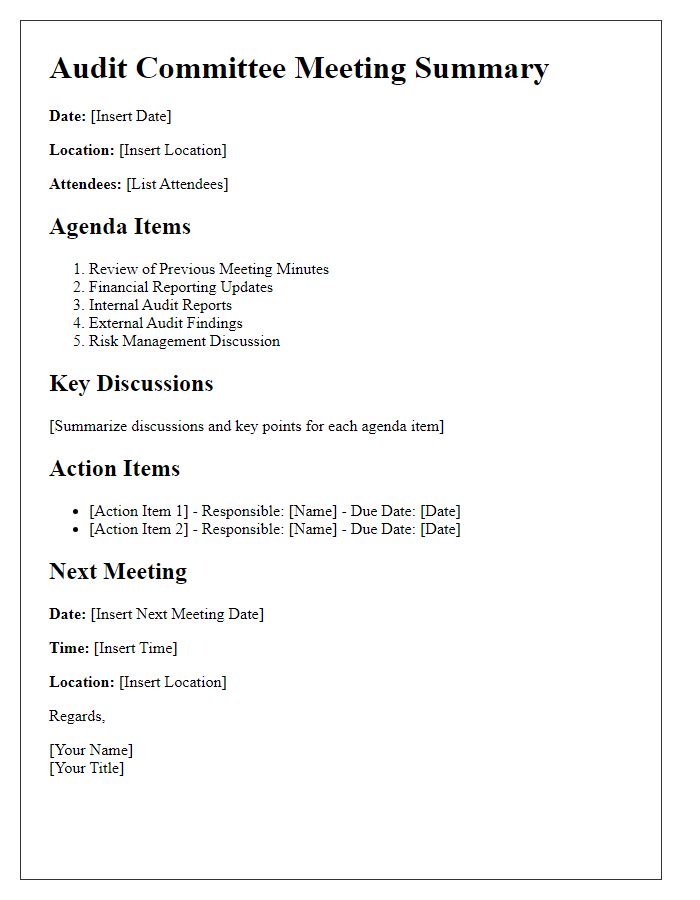
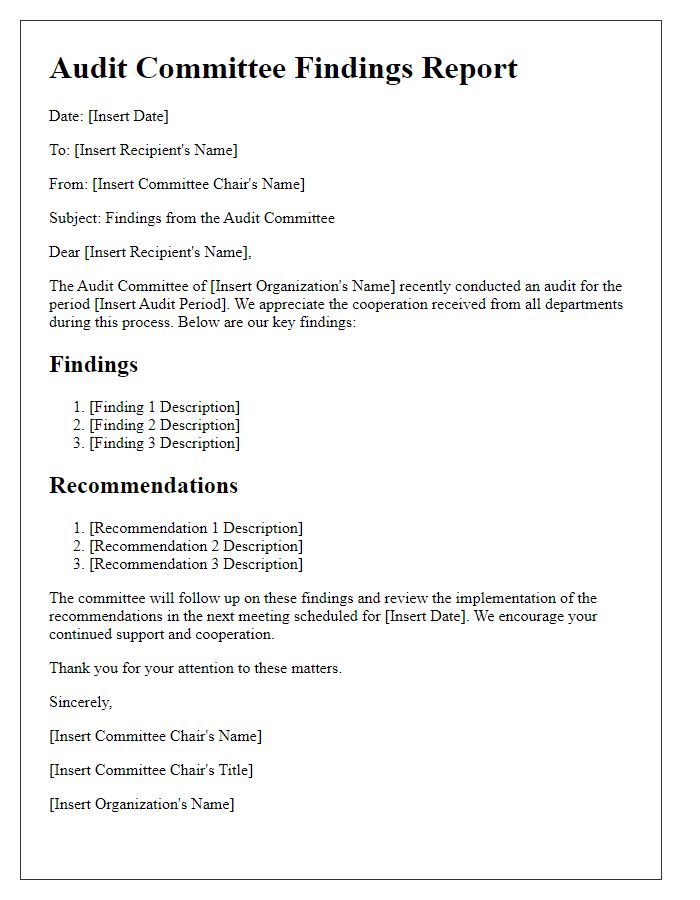
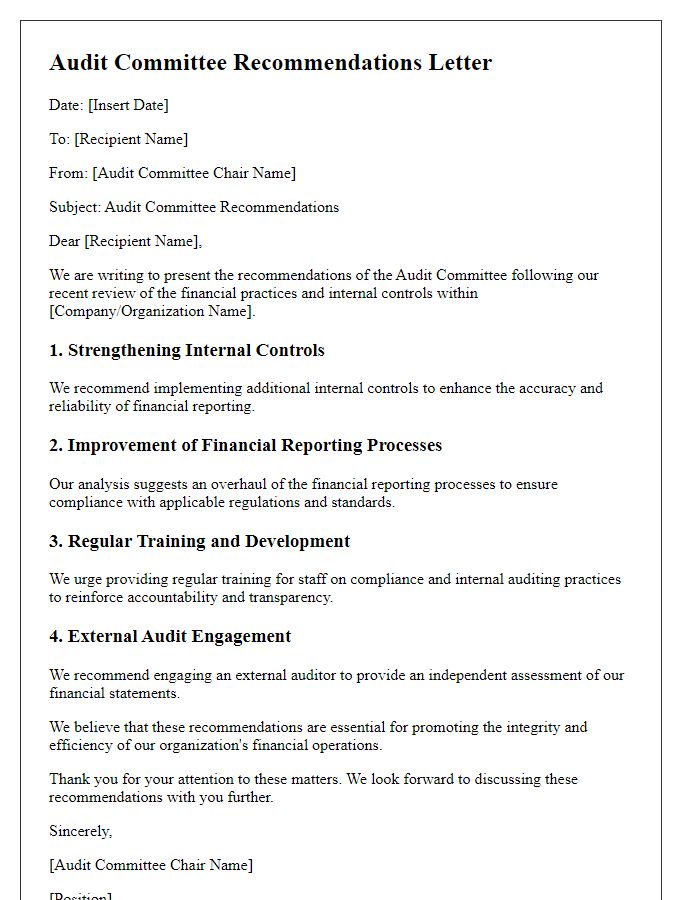
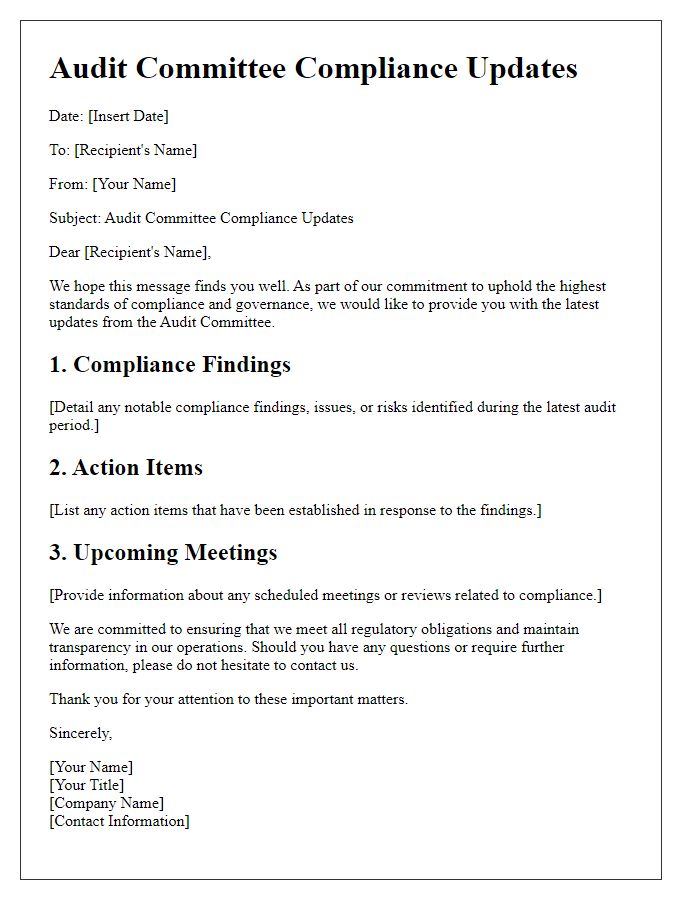
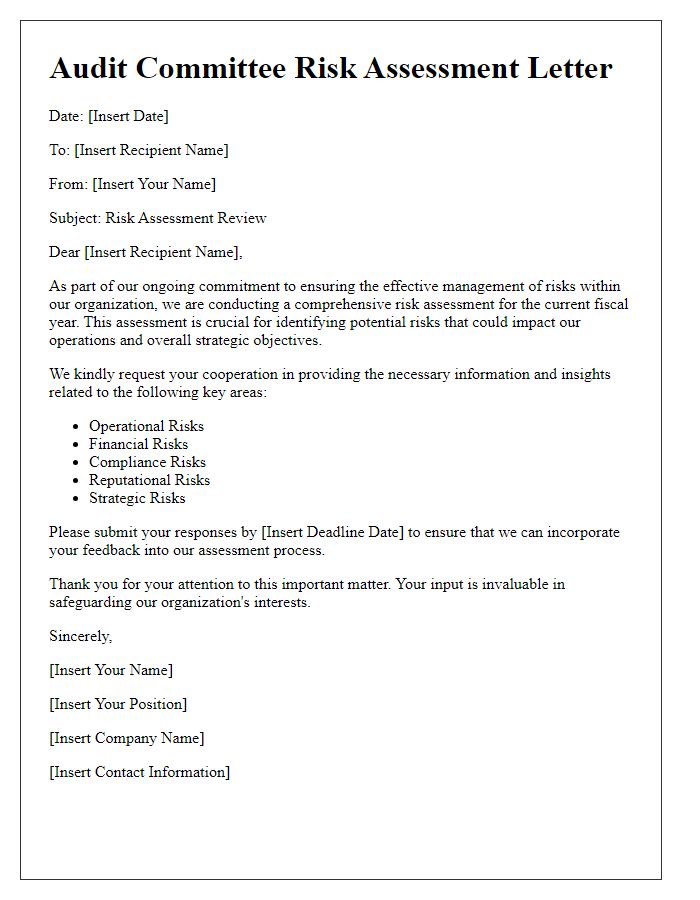
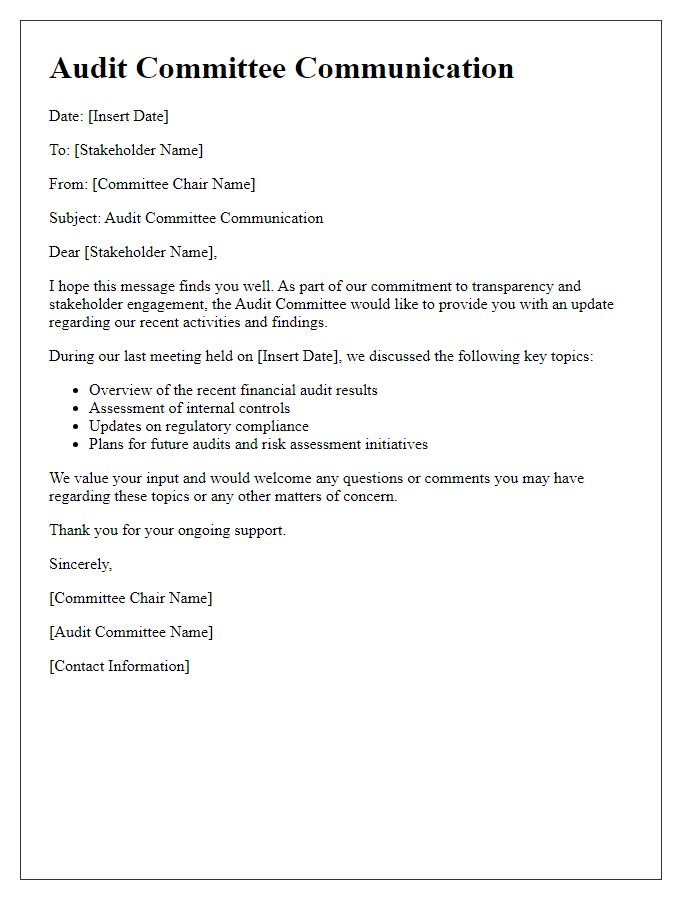
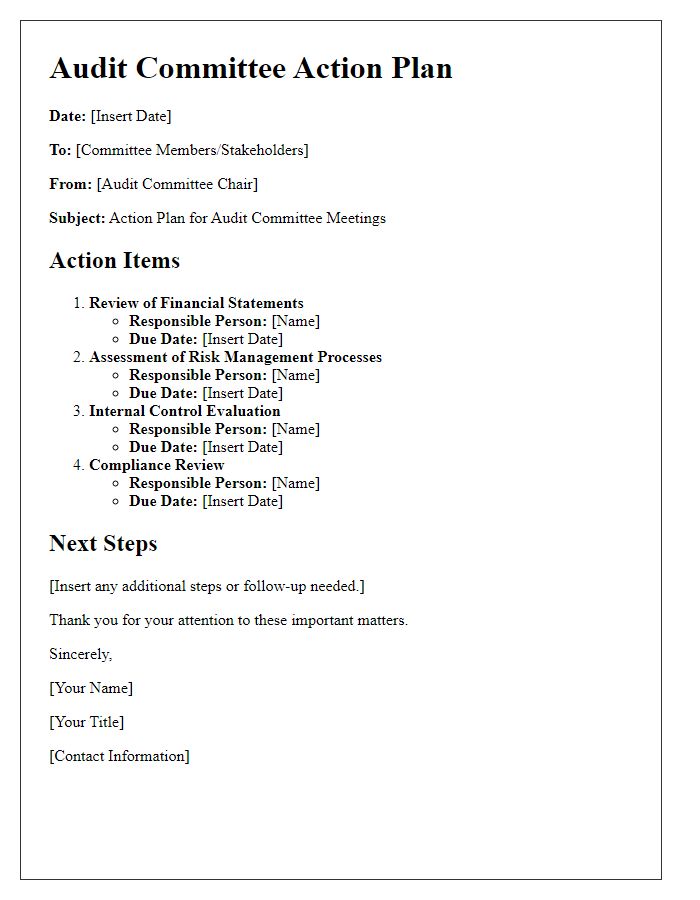
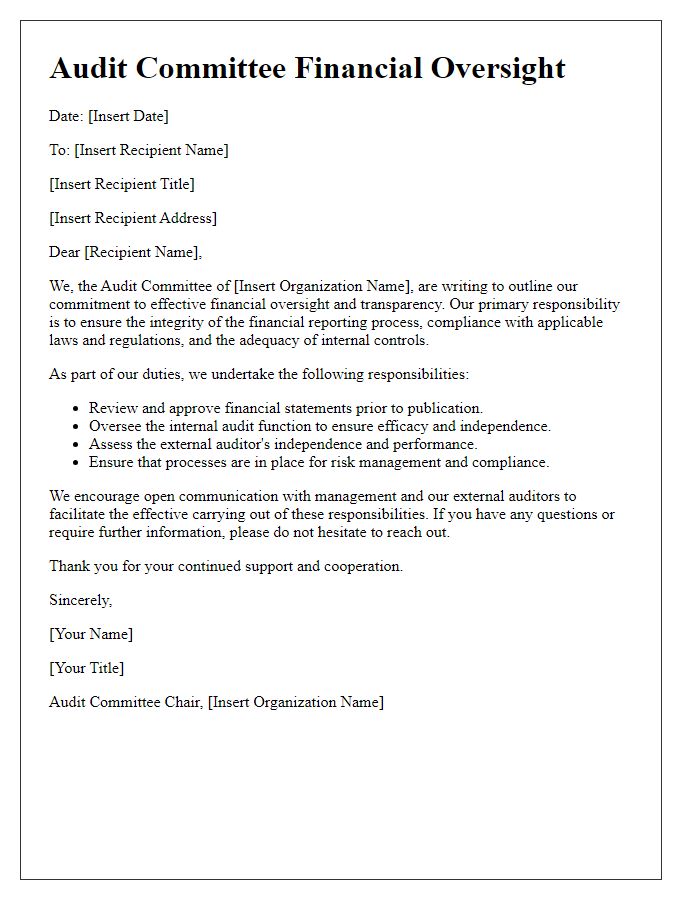
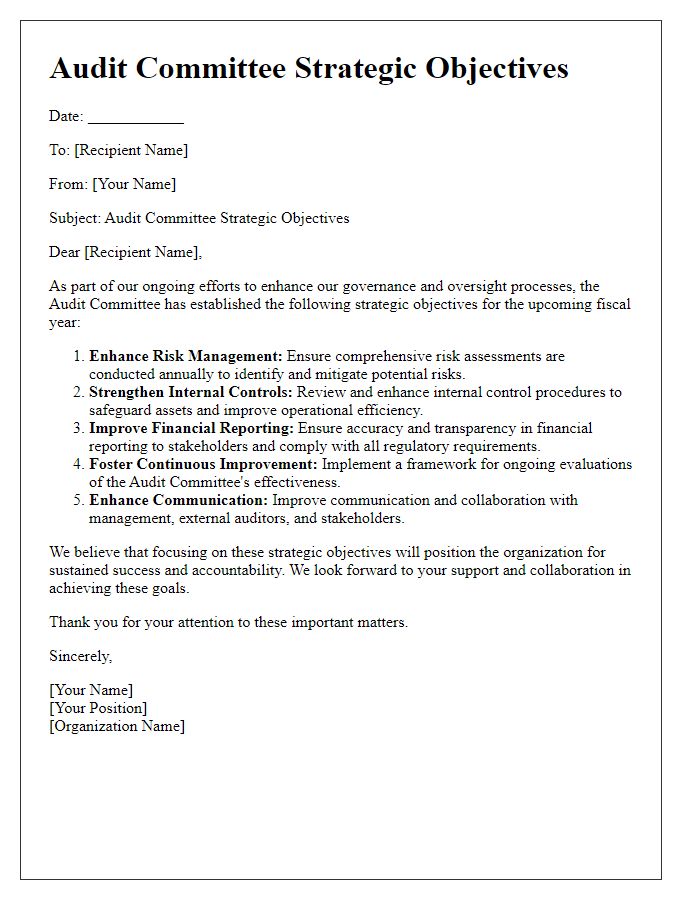


Comments